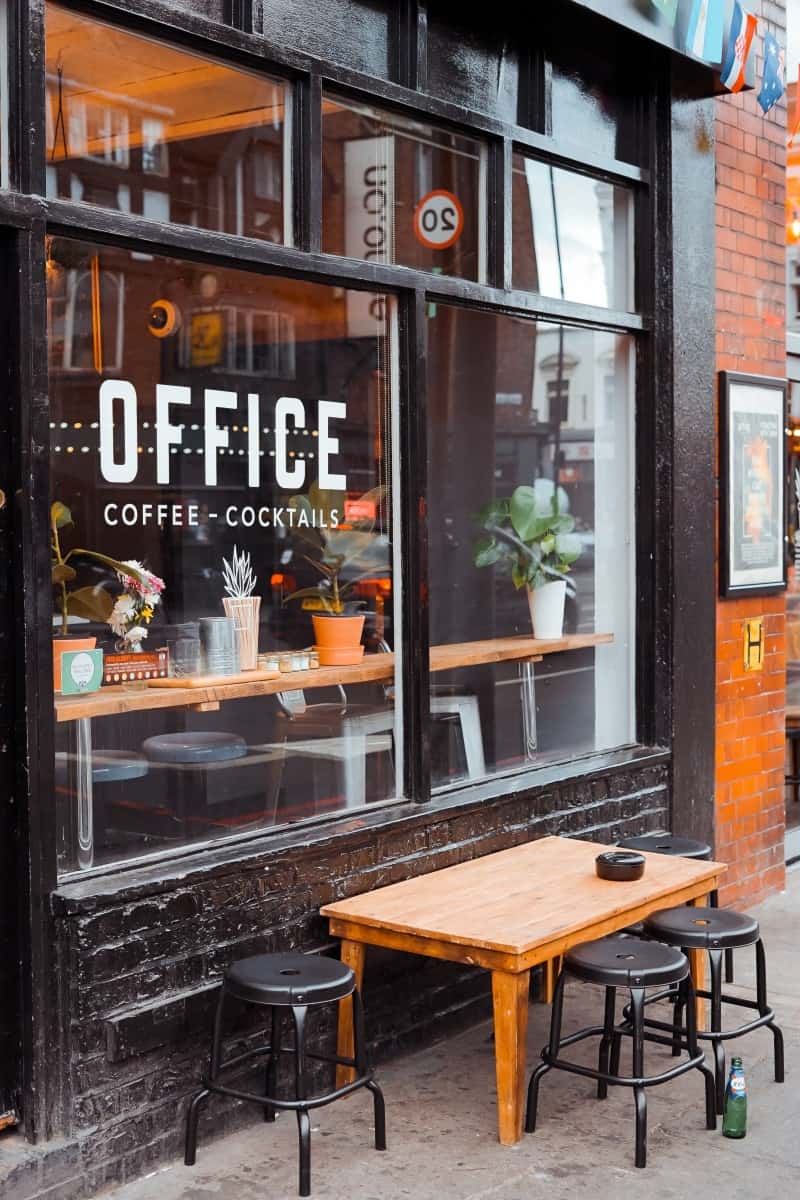Since coffee is responsible for making your digestive tract excited, it can give you gas. People sensitive to coffee will notice gas and puffiness first. The sugar levels in coffee also contribute to making you gaseous. Plus, with weak digestion people would get more gas and possibly bloat.
The dependency on coffee is all around the globe. For most people, coffee is that pre-requisite energy booster and a part of their morning ritual.
Coffee gives alertness, elevates your mood, and makes you feel less tired. But have you noticed that whenever you drink coffee the flatulence level increases? And sometimes you were moments away from the first-hand embarrassment!
You see, coffee can make you gaseous instantly. The acidic nature of coffee and other coffee additives is all responsible for flatulence. Though coffee is a diuretic in some people who are more sensitive than others, it makes you bloated and gassy.
We can discuss further on this as I have done complete research and found some hidden facts. Keep on reading the article, you will be shocked.
Can Drinking Coffee Give You Gas?
Drinking coffee can give you gas especially if you had it on an empty stomach. This is because of its acidic nature. But other things in that cup of coffee like sugars and dairy are also responsible for irritating your digestive tract and causing flatulence.
Every American is hooked on coffee because of the caffeine present in it which allows you to be energized all day. Drinking coffee early in the morning can be really beneficial too because of all the antioxidants it contains. But do you have the urge to pass gas when you sip on your morning cuppa?
Coffee’s acidic nature and additives like dairy and sugar can do that. Here are the reasons why your coffee makes you gassy:
Too Much Caffeine
Coffee is a beverage that can easily be overdosed on. But this excessive caffeine in your system can make your stomach feel bloated and flatulent.
Too much caffeine can initiate peristalsis in the colon. This is a continuous contraction of the muscle which can be really irritating. Plus, tons of caffeine in your system can also cause gastrointestinal disturbances (GI) which makes you have pain, gas, nausea, and diarrhea.
Acidity from Coffee
It’s an established fact that coffee is acidic. I wrote a whole article about it if you’re interested, but to keep it simple, when you drink your cup of joe it can agitate your stomach and intestines.
People with weak digestion can feel this effect more prominently than others. And if you drink your coffee on an empty stomach, the spike in acid levels in the intestines can result in bloating and flatulence. Coffee can even cause severe heartburn. Heartburn is a sign of great amounts of acid present in the gut.
In addition to this, coffee is also known to increase gastrin levels. Gastrin is a digestive hormone that promotes acid for digestion. It’s like taking vinegar shots on an empty stomach. Ouch!
I have made a chart for some of the favs from Starbucks with their acidic ph levels:
| Starbucks Drinks | ph Levels |
| Starbucks Regular | 5 |
| Black Coffee | 5.70 |
| White Mocha (whole milk) | 6.30 |
| White Mocha (skim milk) | 6.26 |
| Caramel Latte | 6.36 |
Avoid The Dairy Bombs
More than half the population of the world is lactose intolerant knowingly or unknowingly. Lactose is a sugar found in dairy and dairy products like yogurt, cream, cheese, etc.
When lactose is present in your stomach, an enzyme called lactase is released for digesting this sugar. People who are lactose intolerant do not have enough supply of lactase, therefore, are unable to absorb the sugar. This can make their stomachs and digestive tract feeling upset and gassy.
If you’re not sure whether your stomach is getting gassy and bloated because of lactose intolerance, avoid cow milk and opt for nut-based or plant-based dairy alternatives. Also, you can take digestive enzymes made for lactose-sensitive people if you cannot do without dairy.
This video explains lactose intolerance in detail.
Sugars and Artificial Sweeteners are Not your Friends
Sugars are not that great for your health. I understand that consuming coffee without any amount of sweetness can be horrible for some people.
But the bacteria present in our intestinal tract feed on these sugars and leads to the production of gas. Plus, if you use artificial sweeteners thinking they are better, you are wrong.
You see, our system does not digest artificial sweeteners like Splenda, Aspartame, or Sorbitol. Instead, you can try using natural sweeteners like honey, stevia, brown sugar can be helpful for your stomach especially if you have a weak digestive system.
Why Does Coffee Give Me Gas Pain?
Coffee can give you mild to severe gas pains depending on the reason it is caused and your sensitivity to it. It can be because your body doesn’t like the coffee acids, or you had coffee on an empty stomach, or too much caffeine consumption from coffee. All these contribute to giving you flatulence pain.
Coffee is a very complex drink with many active ingredients like caffeine. Though this drink looks like a simple energy booster, it can give you GI.
People who are sensitive or have a weak gut should always be careful while drinking coffee. Plus, moderation is the key here. Do not overdose on it just for the sake of fighting fatigue and keeping yourself going throughout the day.
Here are 3 reasons why your morning cuppa is giving you gas pains:
Caffeine Overload
Coffee is very beneficial when consumed in moderation. It is advised not to drink more than four 8 oz cups in a day. But if you drink more than these advised limits or are caffeine sensitive you might want to cut down a bit.
Caffeine from the coffee causes laxative effects. It basically means it increases the acidity in your body and makes you go to the nearest restroom. Plus, coffee is known is to be an irritant for the stomach, this is mostly because of the caffeine present in it.
So next time if you have gas pains after coffee, cut down on your coffee intake. Also, keep a check that your sole source of caffeine is coffee or not. Because sodas, tea, and energy drinks also contain caffeine.

Sensitivity for Coffee Acids
Acids are essential for digestion. They play a major role in our bodies. And coffee has a very acidic nature itself. But too much acid in your stomach can lead to not-so-fun results.
It can lead to gas, bloating, pain, and diarrhea. Try to avoid drinking coffee in excess. It can help you with your sensitivity. Or if you wish, you can halt drinking coffee altogether.
Empty Stomach Coffee Drinker
When people get up in the morning, most people want a hot cup of chockers before they even sit down to have breakfast.
It does wake them up and makes them feel less groggy but this can have some really harmful effects on your gut. This can harm your stomach lining to a great extent.
This irritation is caused when you do not have any substantial food in your stomach and there is acid reflux caused by coffee. And we all know that excessive acid in your digestive system is not good. Try and pair your coffee with a quick on-the-go breakfast which is also healthy and does not let coffee upset your stomach.
You can eat:
- Bananas
- cereal
- Egg Sandwich
- Avocado Toast
- Glazed Donut
- Bagel
- Multigrain Raisin Loaf
How Do You Make Coffee Less Acidic?
You can make your coffee less acidic by purchasing dark roasts and coffee which are grown on higher altitudes like Arabica. Opting for cold brew coffees is another way to cancel out some of the acids from the coffee. Also, you can add full-fat dairy like milk or cream to cut down the acid levels.
Drinking coffee on a regular basis yields great health benefits. But the acidic nature can be harmful especially if coffee is consumed overly. Therefore, sipping less acidic coffee can be a better way to avoid any gas or upset stomach problems.
Making coffee less acidic is not that daunting. You just need to tweak some things here and there and adapt to new ways. Below are some ways which can make your coffee less acidic:
Pick Coffee Beans Grown on Elevation
Coffee plants that are grown on an elevation or high altitude like 3,000 to 4,000 feet tend to be of higher quality than the rest.
Plus, the environment present in these places helps the coffee plant to not have great amounts of acid while giving them a premium taste.
These coffee beans are generally less acidic and have a well-balanced coffee taste. These coffee beans are Arabica Coffee Beans. You can buy them anywhere and at your preferred roast level.
Choose Cold brew Coffee
Cold-brew might be a relatively new technique for you. But brewing coffee in cold water rather than hot water can cut down the acid levels by 60%.
When brewing your coffee at home, just swap your hot water with cold water for brewing. Then you can add hot water to the espresso and enjoy. Or maybe make it into an iced latte if you like.
Also, if you do not brew your daily coffee at home, almost every coffee shop like Dunkin and Starbucks offers cold brew coffee on their menu. Try it and you will be amazed.

Add Dairy Into Your Coffee
If you do not have a cold brew in front of you and the coffee grounds are also not from Arabica beans then should you stop drinking it?
No, you shouldn’t. You can add dairy to it like cream or milk to your coffee. The full-fat milk or half-and-half can neutralize the acidic levels of the coffee. Also, it gives a very smooth and balanced flavor to the coffee.
Milk tastes much creamier if the coffee beans are dark roasted. And dark roasted beans have less acidity because of the higher temperature they are roasted at. Although this might not work for people who are lactose intolerant.
Can Coffee Cause Gastritis?
Coffee abuse can lead to gastritis. Or if you had mild gastritis, it can make it severe for you, causing ulcers and more inflammation due to increased levels of acid from coffee in your digestive system.
Coffee if consumed in moderation does barely any damage to your digestive system. But its complex nature does excite your digestive tract.
Coffee causes more production of gastrin. This high level of acid can cause gastritis, ulcers, pain, and GI. It may also damage your stomach lining which is the protective layer for your gut. This is because too much caffeine can stimulate more production of acid in your stomach as well as cause inflammation. This all can lead to gastritis.
Now gastritis is a stomach condition in which its lining and walls are swollen and inflamed. Prolonged gastritis can lead to ulcers and intolerable pains. If you already have this underlying condition, coffee can make it worse for you.
A small cup of coffee may be bearable but it’s better to avoid coffee when suffering from this. Also, caffeine from colas and tea can agitate this further leading to more severity.
My Thoughts
Generally, gas production is not a serious issue in the human body. It is temporary and can be resolved. It can be irritating and embarrassing in some conditions but it can be avoided. Unfortunately, coffee can induce gas.
You can drink dairy-free milk in your coffee if you are lactose intolerant. And constrain your sugar intake otherwise flatulence can be a real problem for you.
Lastly, limit your coffee intake and also keep a record of your daily caffeine intake.
If you do not, it can cause gastritis and may lead to some serious health concerns that can make you gassy which can be quite painful. Make small changes in your coffee rituals and you will be okay.

